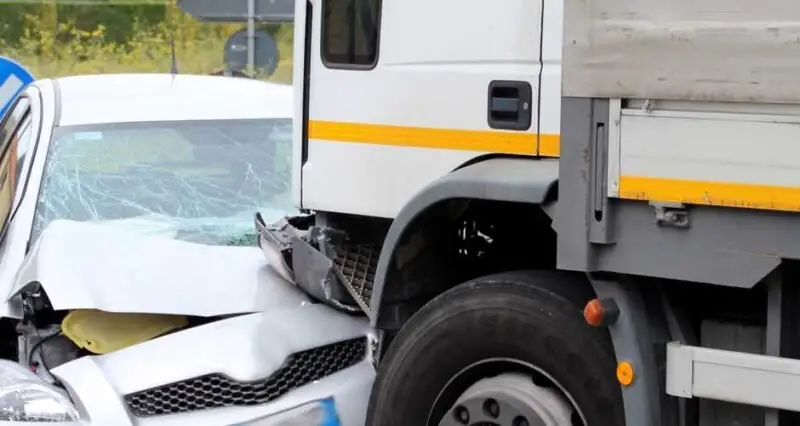
Getting into a truck accident can be a traumatic and overwhelming experience, often resulting in severe injuries and significant property damage. Knowing what steps to take immediately after a truck accident can make a crucial difference in ensuring your safety, preserving evidence, and protecting your legal rights. This article outlines the essential actions to take following a truck accident to help you navigate this challenging situation effectively.
Immediate Steps to Take at the Accident Scene
Ensure Safety and Call Emergency Services
Your immediate priority after a truck accident should be safety. If you are able to do so, move your vehicle to a safe location away from traffic to prevent further collisions. Turn on your hazard lights to alert other drivers. Once you are in a safe position, call emergency services immediately, even if the accident appears to be minor. Prompt medical attention is critical for anyone who might be injured, and a police report will be an essential piece of evidence for your insurance claim.
Check for Injuries
Check yourself and your passengers for injuries. If anyone is injured, avoid moving them unless they are in immediate danger of further harm. Provide first aid if you are trained to do so and wait for emergency responders to arrive.
Document the Accident Scene
While waiting for emergency services, if you can do so safely, start documenting the accident scene. Use your smartphone to take photographs and videos of the vehicles involved, any visible injuries, road conditions, skid marks, traffic signs, and any other relevant details. This visual evidence can be invaluable when filing your insurance claim or pursuing legal action.
Gather Information
Collect the contact information, driver’s license numbers, license plate numbers, and insurance details of all drivers involved in the accident. Additionally, gather contact information from any witnesses who saw the accident occur. Witness statements can provide crucial support for your case.
Interacting with Law Enforcement and Medical Personnel
Cooperate with Law Enforcement
When law enforcement arrives, provide them with a factual account of what happened. Be honest but avoid admitting fault or making speculative statements about the accident. The police will create an official accident report, which will be an important document for your insurance claim and any potential legal proceedings.
Seek Immediate Medical Attention
Even if you feel fine after the accident, it’s essential to seek medical attention as soon as possible. Some injuries, such as whiplash or internal injuries, might not be immediately apparent but can have serious long-term effects. Documenting your injuries immediately after the accident establishes a clear link between the accident and your injuries, which is crucial for your claim.
Post-Accident Actions
Notify Your Insurance Company
Inform your insurance company about the accident as soon as possible. Provide them with the details of the accident and cooperate with their investigation. Be honest in your account but avoid giving a recorded statement or accepting a settlement offer before consulting with an attorney.
Preserve Evidence
Preserving evidence is critical in building a strong case. Keep all documentation related to the accident, including medical records, repair estimates, and communication with insurance companies. If possible, retain a copy of the police report and any witness statements. Your attorney can help ensure that other critical evidence, such as the truck’s black box data, maintenance records, and driver logs, is preserved.
Legal Considerations
Hire an Experienced Truck Accident Attorney
Truck accidents often involve complex legal issues and multiple parties, such as the truck driver, trucking company, and their insurance providers. Hiring an experienced truck accident attorney located in Denver can significantly improve your chances of obtaining fair compensation. An attorney can guide you through the legal process, negotiate with insurance companies, and ensure your rights are protected.
Understanding Liability
Determining liability in a truck accident can be complicated. Multiple parties may share responsibility, including the truck driver, trucking company, vehicle manufacturer, and even government entities responsible for road maintenance. Your attorney will conduct a thorough investigation to identify all liable parties and gather evidence to support your claim.
Types of Compensation
You may be entitled to various types of compensation, including:
- Medical Expenses: Coverage for all medical treatments related to the accident, including future medical care.
- Lost Wages: Compensation for income lost due to the inability to work during recovery.
- Property Damage: Reimbursement for repairs or replacement of damaged property.
- Pain and Suffering: Compensation for physical pain, emotional distress, and loss of enjoyment of life.
- Punitive Damages: In cases of gross negligence or intentional misconduct, punitive damages may be awarded to punish the at-fault party and deter similar behavior in the future.
Navigating the Claims Process
Settlement Negotiations
Insurance companies often aim to settle claims quickly and for the lowest amount possible. Your attorney will negotiate on your behalf to ensure you receive fair compensation. Be prepared for the negotiation process to take time, as it may involve multiple rounds of offers and counteroffers.
Litigation
If a fair settlement cannot be reached, your attorney may recommend filing a lawsuit and taking your case to court. Litigation can be lengthy and complex, but it may be necessary to achieve the compensation you deserve. Your attorney will guide you through the process and advocate for your best interests in court.
Maximizing Your Compensation
Demonstrate the Full Extent of Your Damages
To maximize your claim, it’s essential to demonstrate the full extent of your damages\. This includes not only your immediate medical expenses and lost wages but also the long-term impact of your injuries on your life and future earning potential. Expert witnesses, such as medical professionals, economists, and vocational rehabilitation specialists, can provide valuable testimony to support your claim.
Follow Your Doctor’s Advice
Follow your doctor’s advice and attend all recommended medical appointments. Failing to follow through with treatment can be used against you by insurance companies to argue that your injuries are not as severe as claimed. Adhering to your treatment plan not only supports your recovery but also strengthens your claim.
Avoid Social Media
Be cautious about what you post on social media after an accident. Insurance companies and defense attorneys may use your posts against you to undermine your claim. Avoid discussing the accident, your injuries, or your legal case on social media platforms.
Conclusion
A truck accident can be a devastating event with far-reaching consequences. Knowing what to do immediately after the accident can significantly impact your ability to recover physically, emotionally, and financially. By following these steps—ensuring safety, seeking medical attention, documenting the accident, hiring an experienced attorney, and navigating the claims process carefully—you can protect your rights and maximize your compensation. Remember to be patient and persistent, as the road to recovery and legal resolution can take time. With the right approach and support, you can navigate the complexities of a truck accident claim and achieve the best possible outcome for your situation.

